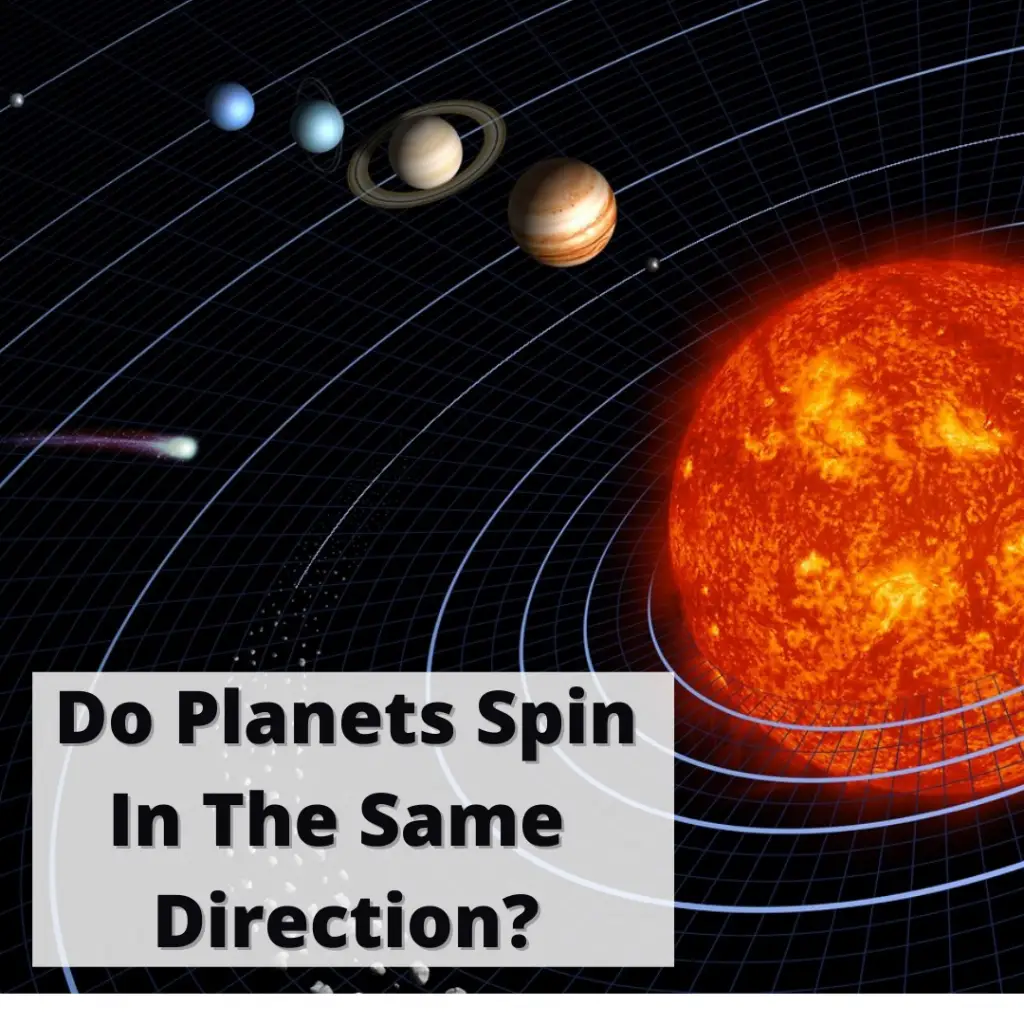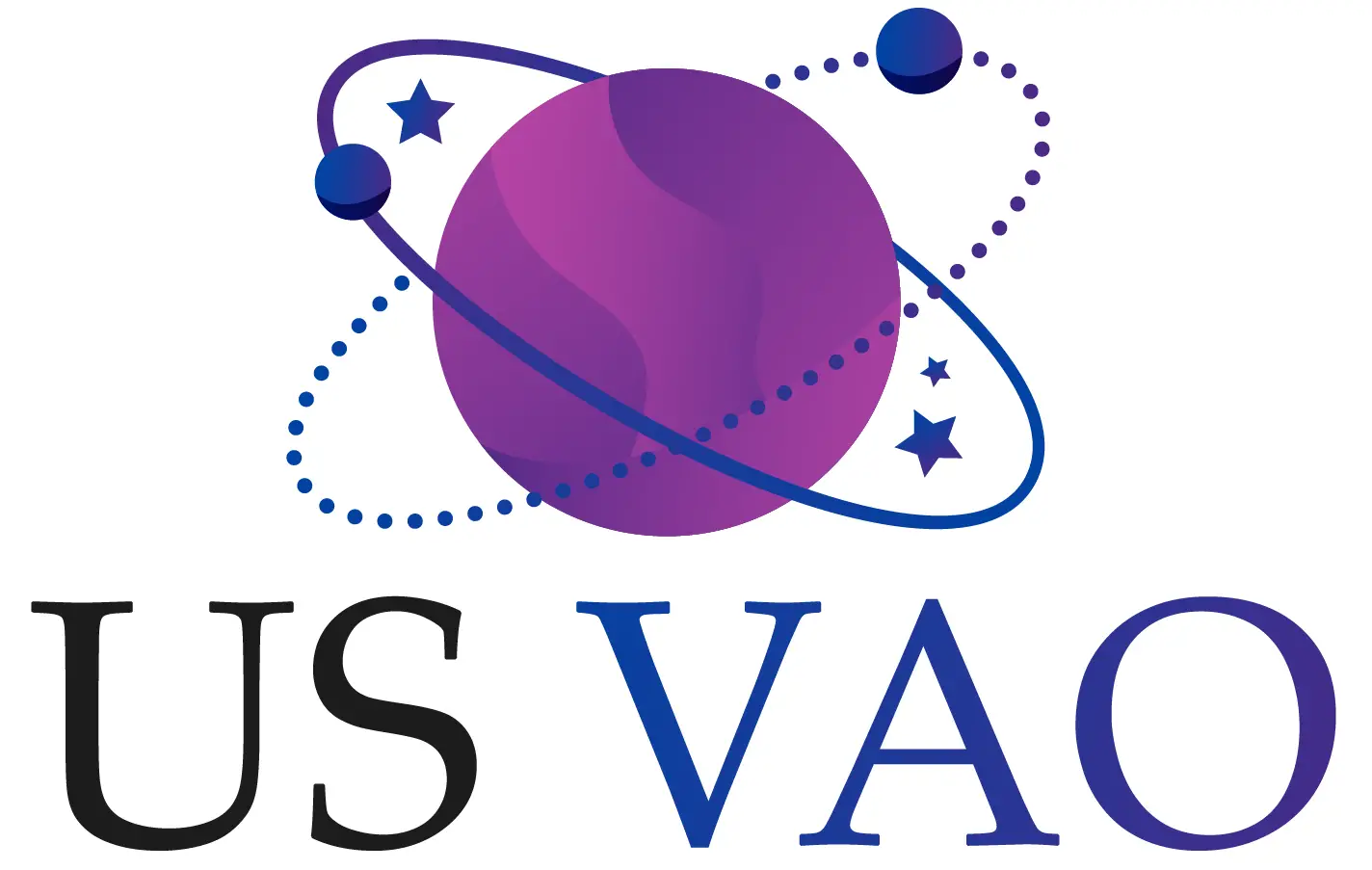The planets are curiously unique, in color, size, and rotation.
In this article, we’ll answer some common questions about the rotation of planets.
Do All Planets Rotate In The Same Direction?
Most planets in our solar system rotate in the same direction that they orbit the sun.
However, there are a few exceptions.
Venus and Uranus rotate in the opposite direction of their orbits.
Additionally, Pluto’s rotation is tilted so that it is orbiting on its side!
Why Do Venus and Uranus Rotate In The Opposite Direction Of Their Orbits?
Venus and Uranus likely formed in the same way as the other planets in our solar system.
So, how did they end up rotating in the opposite direction?
Scientists have posited more than a few theories.
Crashing
Some believe that these two planets suffered significant collisions very close to planetary births with something incredibly large (as large as a planet), which either caused the initial spinning or reversed it.
Orbital Resonance
Others believe that it has to do with a process called “orbital resonance.”
This is when the orbital period of one planet is a multiple of another planet’s orbital period.
For example, Pluto has an orbital period of 247.92 years while Neptune’s is 60,190.48 years.
This means that for every 2 orbits of Pluto, Neptune completes 3.
The last theory has to do with the sun’s magnetic field.
When a planet first forms, it is thought to be surrounded by a disk of dust and gas.
As the planet grows, it starts to spin faster and faster.
Eventually, the sun’s magnetic field interacts with the disk, and causes it to slow down and reverse its rotation.
Why Is Pluto’s Rotation Tipped On Its Side?
Pluto’s rotation is tipped on its side by about 17 degrees.
Most scientists believe that this is likely the result of a collision with another planet-sized object early on in Pluto’s history.
This impact would have been so large that it completely disrupted Pluto’s rotation and knocked it onto its side.
One other possibility is that Pluto’s tilted rotation is the result of orbital resonance, like Venus and Uranus.
But, in this case, it is thought to be resonance with Neptune that is responsible.
As Neptune’s gravity tugs on Pluto, it could gradually change the orientation of Pluto’s spin.
Do Any Other Planets Have Unusual Rotations?
Despite being small, Mercury has a long day. It completes one rotation every 59 days.
In comparison, a day on Venus lasts 243 Earth days.
Earth’s day is just under 24 Earth hours.
Why Do Planets Rotate Around The Sun At Different Speeds?
The speed of a planet’s rotation depends on a few different factors.
One is the distance from the sun.
The closer a planet is to the sun, the faster it will rotate.
This is because the sun’s gravity is stronger on planets that are closer to it.
Another factor is the size of the planet.
The larger the planet, the slower it will rotate.
This is because it takes more time for the larger planet to complete one full rotation.
The last factor is the amount of time that the planet has been in its current orbit.
The longer a planet has been in its orbit, the slower it will rotate.
This is because the gravity of nearby planets can gradually slow down a planet’s rotation over time.
Do All The Planets Revolve Around The Sun In The Same Direction?
Yes, they do! All the planets in our solar system revolve around the sun in the same direction.
This is because they all formed from the same spinning disk of dust and gas.
As they coalesced and grew, they all kept spinning in the same direction.
Additionally, the sun’s gravity kept everything moving in the same direction.
Why Does Venus Rotate Slowly?
Venus takes 243 Earth days to complete one rotation.
That means it has the longest day of any planet in our solar system!
There are a few different theories about why Venus rotates so slowly.
Some scientists believe that it is because of the way Venus formed.
They think that when it was first forming, it was hit by a large object.
This may have slowed the planet’s rotation.
Others think that the slow rotation is the result of solar tides.
Tides are created when the gravity of a nearby object pulls on another object.
Yet still others think that Venus’ slow rotation is due to the orbital resonance that also causes it to rotate opposite its orbit around the sun.
You might also like:
- Quasars and Magnetars Compared
- Can You Breathe on Titan?
- Neutron Stars and Pulsars Compared
- Comparing Wormholes and Black Holes
- White Dwarf vs Neutron Star (Compared)
- Should You Worry About Black Holes?
- What Are Circumpolar Stars?
- Can You Walk On Pluto?
- 50+ Fun Facts About The Sun (FAQs)







